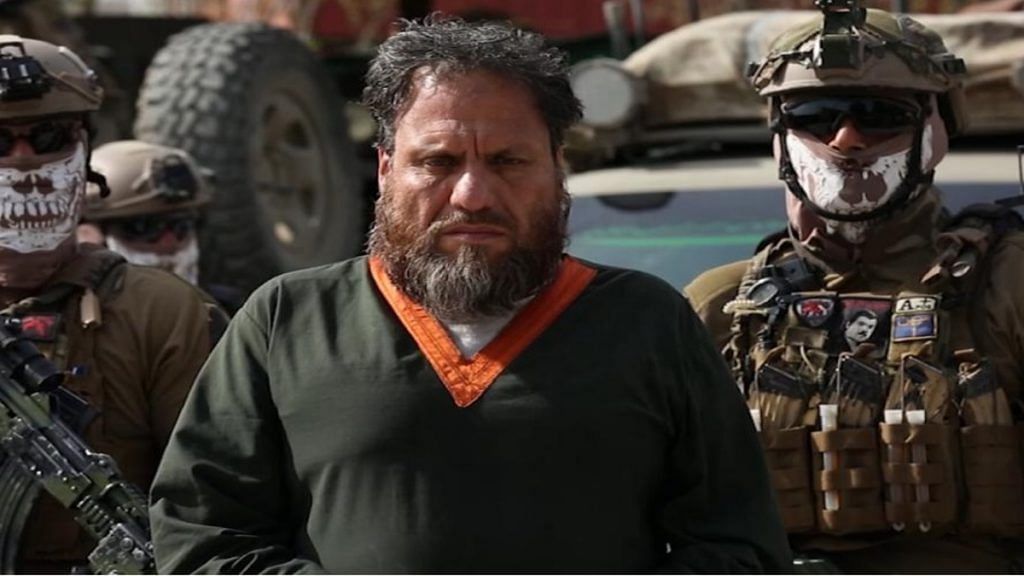India’s National Investigation Agency for the very first time since it was founded in December 2018, registered a case in a terrorist incident in a foreign country. The first case of its kind is against the brutal terrorist attack on a gurdwara in Kabul, Afghanistan.
There are three aspects to the 25 March attack on the 400-year-old gurdwara in Shor Bazar that killed more than 25 people — a marked departure from the Afghan vs Afghan vs US violence of the last few months. The Indian angle, Pakistan’s demand for the arrested ISKP member, and the new turf war among militant groups for operations in Kashmir.
Also Read: Islamabad’s claim over Kabul gurdwara bomber ‘reeks of Pakistani conspiracy to save him’
Attack against India
Most ascribed the new attacks as another sectarian attack. But there are some anomalies.
First, the lone attacker killed was Muhsin, an Indian from Kasaragod, according to the NIA chargesheet. Enough is known about the Kasaragod ’15’, the largest single group to join the IS. Suffice to say that Muhsin was not one of them, which means that many more may have gone to Afghanistan. That’s not entirely remarkable since Kerala cadres have also moved from West Asia. However, there’s a second issue. Keralite Muslims, or even those in other parts of India, have no grouse at all against Sikhs.
Years of data analysis has indicated that radicalisation generally takes place along the lines predetermined by prejudice and motivation. Given the radicalism trends apparent also in interviews, Muhsin would have been part of a strike group as an attack against India, and the Narendra Modi government in particular. It was not a sectarian attack.
Also Read: Arrested for Kabul attack, Faroqi could prove IS-K links to Pakistan: Afghan vice president
ISKP and Islamabad connection
A second development was the arrest of Aslam Farooqi aka Abdullah Orakzai, the ringleader of ISKP, and 19 others. A day later, 37 people, including women and children, were reportedly arrested in an operation by Afghan security forces.
Days earlier, the group had allegedly kidnapped an officer of the National Directorate of Safety (NDS) and attacked the US base at Bagram. The Taliban, however, says that Farooqi surrendered to escape capture by the security forces.
This is part of a narrative backed by Pakistan, which sees Islamic State Khorasan Province — ISKP — as an Afghan creation against ‘home grown’ Taliban. That narrative is increasingly falling apart as more details emerge. The NDS just provided details of two of the arrested operatives, one from Dhaka (but trained in Pakistan), and another from Islamabad. In addition, multiple sources aver that Farooqi was linked to Lashkar-e-Taiba and that the gurdwara attack was probably a Haqqani network operation.
Unsurprisingly, Pakistan is pressing for Farooqi’s extradition, since he could prove to be a gold mine of information on who paid him to do what. Effectively, that information will tear apart the prevailing fallacy that the ISK (Kabul chapter) and the Lashkar are separate entities. In simple words, Pakistan is not just running the Taliban, but also a variety of IS or IS linked entities.
Also Read: 5 militants & 3 Indian army soldier killed in Kupwara during Infiltration attempt across LoC
IS in Kashmir
The third aspect is the activities of the Islamic State in its ‘Wilayat Hind’ form operating in Kashmir. Its most recent attack was in Bijbehara, Anantnag district, where a grenade killed one CRPF jawan, an achievement for a group that made its formal entry in India only in May 2019.
But ISK activity has been seen since 2017, when one Eisa Fazili shot dead a police officer in Srinagar, claiming it in Amaq together with a picture of the dead soldier. Fazili was a BTech student at a local university in the area. He and others like him seem to have left their original militant groups like the Tehreek ul Mujahideen and Hizbul Mujahideen after differences. These came to a head in July 2019 when a video emerged of a group of IS militants pledging allegiance to Abu Bakr Al Baghdadi and declaring the others as ‘apostate’. It also accused their cadres in the area of leaking information to security forces. Fighting broke out in Bijbehara thereafter, and the area became a centre of contention.
Today, just a few cadres remain in Kashmir, but its social media channels are very active. Meanwhile, it seems that the IS has put its foot into the anti-CAA protests, with people allegedly having links with the terrorist outfit arrested in Delhi last month.
At present Kashmir has gone back to 2001, when Pakistan was able to push the narrative of an ‘indigenous’ uprising, by supporting diverse small groups as also the mainstream ones. Today, the immense pressure by entities like the Financial Action Task Force (FATF) makes it even more imperative that ‘local’ groups appear to prevail.
That’s where the IS flags come into the picture. But the plan is facing resistance from the established groups on both sides. Neither the Taliban or the Jaish-e-Mohammad or Lashkar-e-Taiba want locals vying for operational space. However, they don’t have any objection to the IS operating in Delhi or other cities, and fishing in troubled waters.
As India fights Covid-19, a new operational strategy is underway that is likely to focus on creating small-unconnected cells or groups in Kashmir and the hinterland. This makes counter-terrorism operations far more hazardous.
Clearly, Pakistan is not going to allow such a thing even though a global pandemic hampers its plans. Rising infiltration on the Line of Control is just another indicator of the trouble ahead. Meanwhile, Farooqi is talking. That’s something.
The author is former director, National Security Council Secretariat. Views are personal.
